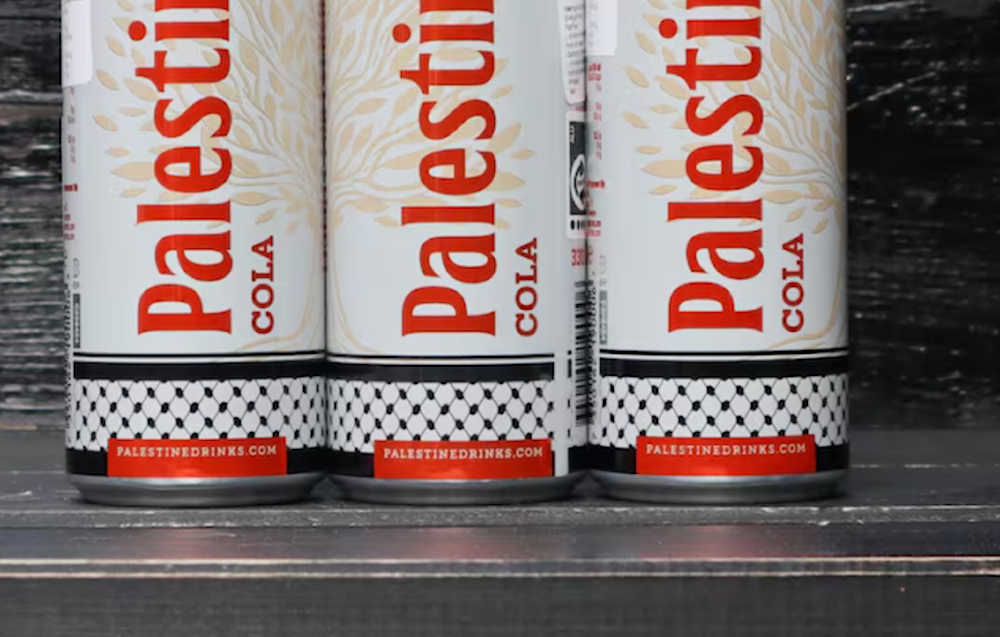Local soda brands surge amid Coke, Pepsi boycotts in Muslim nations
Western beverage brands saw a 7% drop in sales across the region in the first half of the year, according to market researcher NielsenIQ.
-

Palestine Cola, launched in March earlier in March 2024 (Social media photo)
Despite Coca-Cola and Pepsi investing heavily in Muslim-majority countries like Egypt and Pakistan, local brands' popularity is skyrocketing due to ongoing boycotts of brands affiliated with the Israeli occupation.
In Egypt, Coca-Cola's sales have plummeted this year, while local brand V7 has tripled its cola exports in the region
In Bangladesh, Coca-Cola had to cancel an ad campaign in response to the boycott, and Pepsi's rapid growth in the Middle East has stalled since the war on Gaza began in October.
Sunbal Hassan, a Pakistani business leader, took Coke and Pepsi off her wedding meal in Karachi in April, citing the boycotts and that "one can play a part by not contributing to those funds." Instead, she served her wedding guests the Pakistani brand Cola Next
Western beverage brands saw a 7% drop in sales across the region in the first half of the year, according to market researcher NielsenIQ.
In Pakistan, Krave Mart founder Kassim Shroff reported that local cola brands like Cola Next and Pakola have gained significant market share, now accounting for about 12% of the soft drinks category, up from 2.5% before the boycott. Pakola, an ice-cream soda, was the most popular choice before the boycott, although Shroff did not disclose Coca-Cola and PepsiCo sales figures.
Following the onset of the war on Gaza, PepsiCo's beverage volumes in its Africa, Middle East, and South Asia division saw little growth over six months, compared to 8% and 15% growth in the same period of 2022/23. During the same timeframe, Coca-Cola's sales in Egypt dropped by double-digit percentages, contrasting with a rise in the previous year.
PepsiCo's total revenue from its Africa, Middle East, and South Asia division was $6 billion in 2023, earnings releases show. The same year, Coca-Cola's revenue from its Europe, Middle East, and Africa region was $8 billion, company filings show.
Cola Gaza; one of Palestine-inspired boycotts' long-term impacts
Since the war on Gaza began in October, over 12 multinational companies backing "Israel" have faced widespread consumer boycotts, TIME reported.
The boycotts have had a noticeable impact, resulting in reduced sales, layoffs, and significant reputational damage. However, it has also created opportunities for new brands to step into the void left by the major corporations.
One such alternative is Cola Gaza, which entered the British market this month, and another is Palestine Drinks, a Sweden-based company that debuted in March and caters to the EU, the UK, and South Africa.
Mohamed Kiswani, communications director of Safad Food, Palestine Drinks' Palestinian-owned parent firm, told TIME that the beverage has been in high demand, citing the company had "no idea it would be this popular" and revealing it has sold close to 16 million cans in the last 5 months with the revenues going to organizations that help Palestinian civil society in the West Bank and Gaza.
According to Kiswani, “We are not selling drinks,” rather “We are selling the brand ‘Palestine,’ to get people to talk more about the genocide that is happening.”
Typically, consumer boycotts in support of Gaza last for mere days or weeks, but the current boycott and bombardment have lasted over 10 months.
Brayden King, an expert on boycotts at Northwestern University's Kellogg School of Management, told TIME that while most boycott efforts have little long-term influence on consumer behavior, those that do may use public scrutiny to their advantage. "People hold each other accountable," he says—a duty made much simpler when it comes to commodities commonly used in social situations, such as food and drink.

 4 Min Read
4 Min Read








